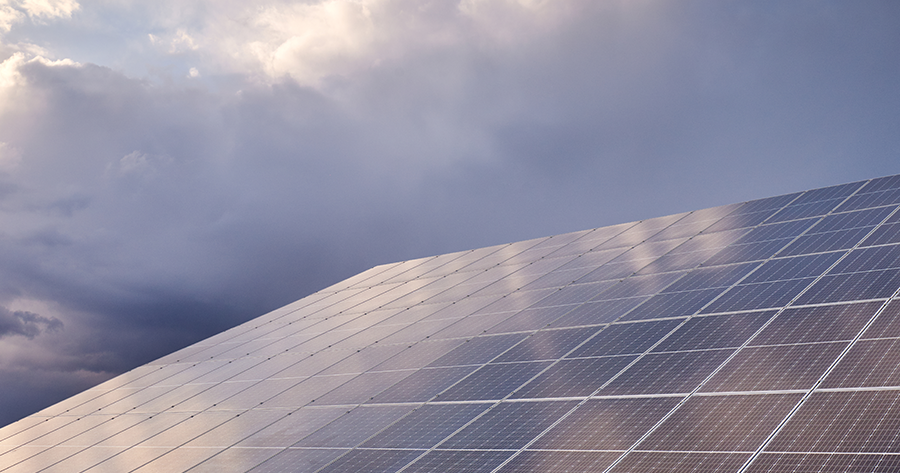Do Solar Panels Work on Cloudy Days?

Australians are adopting solar power systems at a rapid pace. This is a wonderful thing for the environment and for reducing utility bills. Luckily for us, Australia experiences some of the sun's most powerful rays, even on cloudy days. We enjoy warmer temperatures and more sunny days in winter than most places around the world, making this the perfect location for installing solar power systems in homes and businesses.
However, like most places, our weather is not perfectly sunny 100% of the time and cloudy days are inevitable. But will solar panels still work when it is overcast?
Installing solar panels is an excellent investment; not only will you save money on your electricity bill, but you can also help to reduce your impact on the environment, even in bad weather.
Is solar power right for me?
The solar energy trend has boomed in recent years; according to ARENA, more than two million, or 21%, of Australian households now have rooftop solar PV with a combined capacity of more than 10 GW!
If you are considering investing in solar power for your home, you might be wondering how much solar energy your system will be able to produce.
There are a number of factors that determine how much solar energy is produced by your solar PV system, including:
- The size of your system
- The angle of your solar panels on your rooftop
- How much shading could affect your solar panels
- The number of hours of daylight you have
- The intensity of sunlight
- Cloudy days vs. sunny days in your area
Solar Panels VS Bad Weather
One of the main factors that determines how much energy your solar power system produces is dependent upon how much sunlight it sees. The number of hours of full sun where you live will determine the size of the solar power system needed and how much solar energy it will produce. Solar panels can work in fog, rain, mist and generally bad weather, with various levels of solar power production.
- Fog
Depending on the type of fog or mist in the area, your solar panels might actually work better than in direct sunlight. If the fog rolls off the sea into your neighbourhood from mid-morning through late afternoon, your solar panels should collect energy at an enhanced rate. This is because solar panels are actually more efficient at cooler temperatures than hot ones.
- Rain
Unsurprisingly, if the bad weather is caused by precipitation, your solar panels will most likely generate power at a lower rate than during sunny hours. In fact, most solar power systems will produce 10-25% of their rated capacity during inclement weather.
- Clouds
Cloudy weather unfortunately does have a negative effect on solar power production, as the clouds will reduce the amount of sunlight reaching your panels. As a general rule of thumb, on a cloudy day a solar power system will produce around 25% to 45% of the energy it would normally produce under ideal conditions.
With that being said, high-quality solar panels are much better at collecting ambient light than others and do better under shaded or cloudy conditions, so be sure to ask your solar installer if you are concerned about which types of panels are best for your location.
Is solar still worth it?
Australia is one of the sunniest places in the world and is one of the best countries for solar power potential. When calculated and averaged annually, we have the potential to produce more solar energy than the population of Australia can actually use!
Though solar power systems will not make financial sense for every single household, those with unshaded rooftops can benefit greatly from a solar power system.
If you are considering installing a solar PV system, know that your overall picture is more important than losing a few KWH during a rainy day. In the long-term, solar panels are excellent investments that will provide your home or business with clean, free electricity for years to come.
Our energy consultants will be able to provide you with an expected return on investment and can recommend the best solar panels to suit your system requirements. Contact us for a quote on 1300 074 669 or click here to arrange a call-back.


